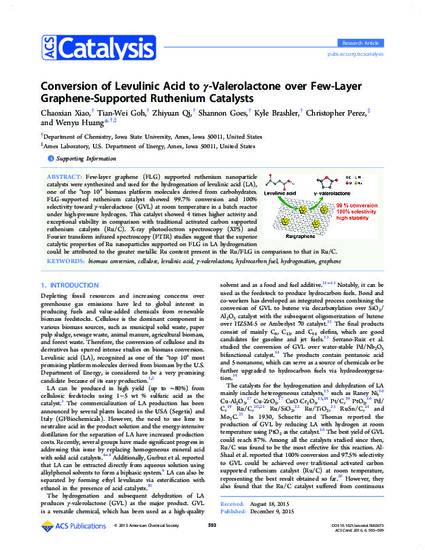
Few-layer graphene (FLG) supported ruthenium nanoparticle catalysts were synthesized and used for the hydrogenation of levulinic acid (LA), one of the “top 10” biomass platform molecules derived from carbohydrates. FLG-supported ruthenium catalyst showed 99.7% conversion and 100% selectivity toward γ-valerolactone (GVL) at room temperature in a batch reactor under high-pressure hydrogen. This catalyst showed 4 times higher activity and exceptional stability in comparison with traditional activated carbon supported ruthenium catalysts (Ru/C). X-ray photoelectron spectroscopy (XPS) and Fourier transform infrared spectroscopy (FTIR) studies suggest that the superior catalytic properties of Ru nanoparticles supported on FLG in LA hydrogenation could be attributed to the greater metallic Ru content present in the Ru/FLG in comparison to that in Ru/C.
Available at: http://works.bepress.com/wenyu_huang/35/

Reprinted (adapted) with permission from ACS Catal., 2016, 6 (2), pp 593–599. Copyright 2016 American Chemical Society.